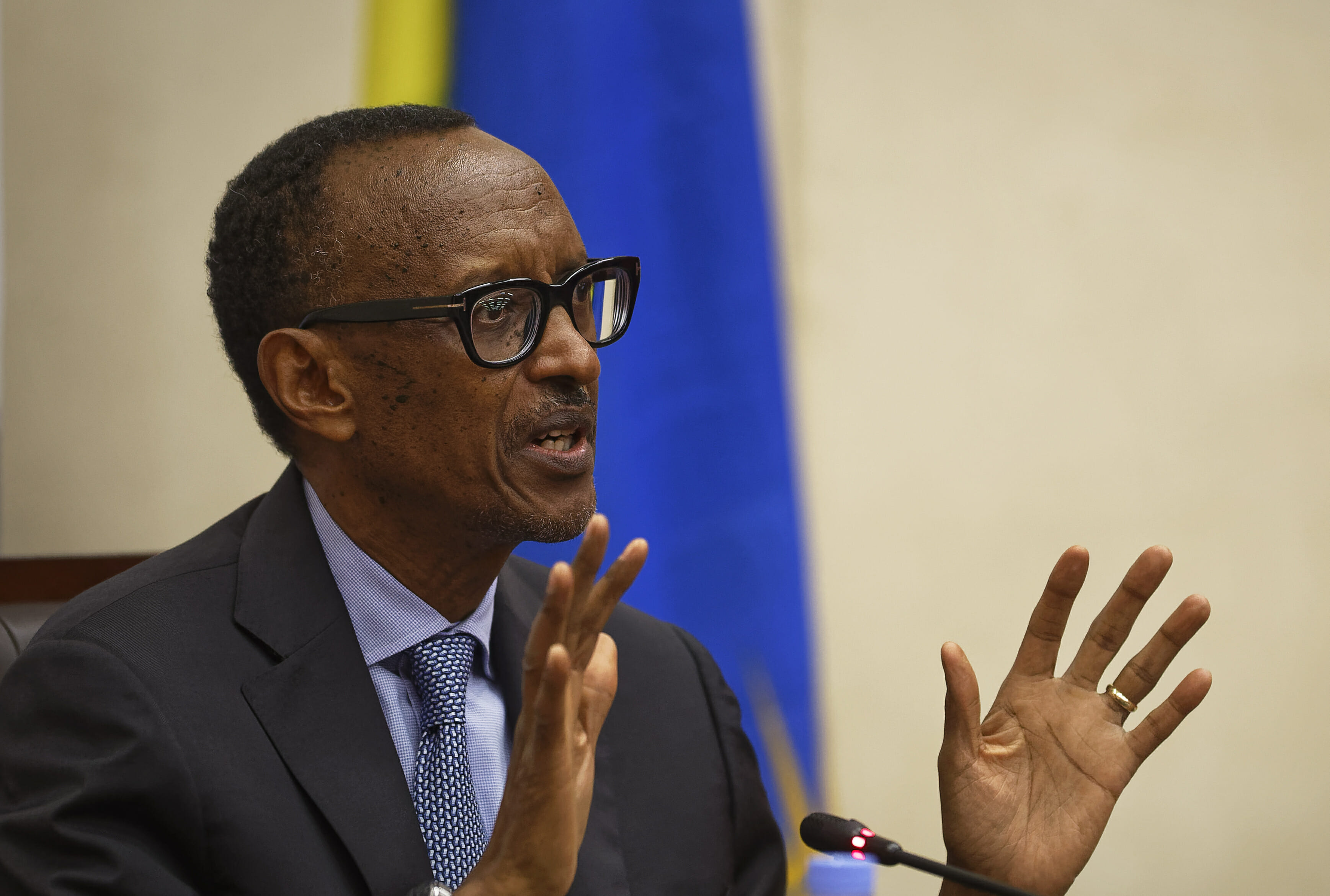
25 years after genocide, Rwanda's president praises healing
KIGALI, Rwanda (AP) — Rwanda’s President Paul Kagame said Monday that the perpetrators of the 1994 genocide feel repentant for killing some 800,000 people and that is helping the country to find reconciliation.
Rwanda has begun commemorating the genocide which began 25 years ago and in which Hutu extremists slaughtered Tutsis and Hutus who tried to protect them during a 100-day period.
Kagame said Rwanda is rebuilding as a new nation of hope.
“Reconciliation is also one choice that has taken root,” said Kagame in a press conference in the capital, Kigali. “It has happened because even perpetrators have come out to say ‘We are sorry.’
“They (the genocide’s perpetrators) have come out to show remorse,” he said. “Survivors have also made a choice to forgive which completes a circle of reconciliation.”
The mass killing of Rwanda’s Tutsi minority was ignited on April 6, 1994, when a plane carrying President Juvénal Habyarimana was shot down and crashed in Kigali, killing the leader who, like the majority of Rwandans, was an ethnic Hutu.
The Tutsi minority was blamed for downing the plane and the bands of Hutu militants began slaughtering the Tutsi, with support from the army, police, and militias.
Kagame said Rwandans will never turn against each other again.
He said Rwandans coming together over problems “we have had to address is key. It is one of the choices that have enabled us to make this progress.”
Kagame said Rwanda is building a new relationship with France, which previously his government has accused of having had a role in the genocide.
“There’s a conversation going on how to improve the relationship with Rwanda,” said Kagame. “France is also making good steps on matters on Africa generally.”
On Friday, French President Emmanuel Macron ordered a French commission of researchers and historians to investigate the “role and involvement of France” in Rwanda from 1990-1994. It is to make conclusions within two years.
Kagame has won praise for ending that violence and making advances in economic development and health care. Ethnic reconciliation is a cornerstone of the rule of Kagame, Rwanda’s de facto leader since the genocide ended in 1994 and the country’s president since 2000. He is credited with bringing Rwanda stability, economic growth, and improved health and education.
However, Kagame’s critics charge that he is intolerant of criticism and his government is repressive, jailing opposition leaders.
On Sunday, to mark the start of the genocide, Kagame and several world leaders gathered with some 30,000 people at the National Stadium in the capital for a candlelight ceremony.
“We Rwandans have granted ourselves a new beginning. We exist in a state of permanent commemoration, every day, in all that we do,” said Kagame on Sunday. “Today, light radiates from this place.”
___
Follow Africa news at https://twitter.com/AP_Africa
The Western Journal has not reviewed this Associated Press story prior to publication. Therefore, it may contain editorial bias or may in some other way not meet our normal editorial standards. It is provided to our readers as a service from The Western Journal.
Truth and Accuracy
We are committed to truth and accuracy in all of our journalism. Read our editorial standards.
Advertise with The Western Journal and reach millions of highly engaged readers, while supporting our work. Advertise Today.












